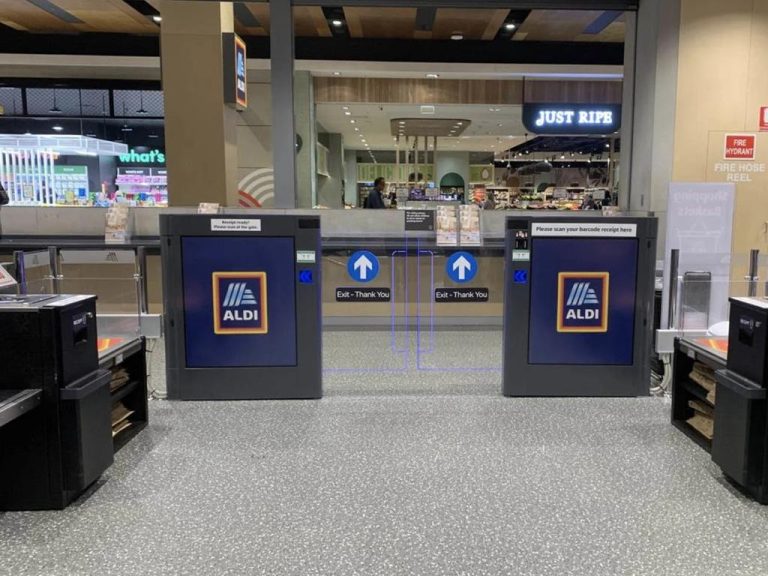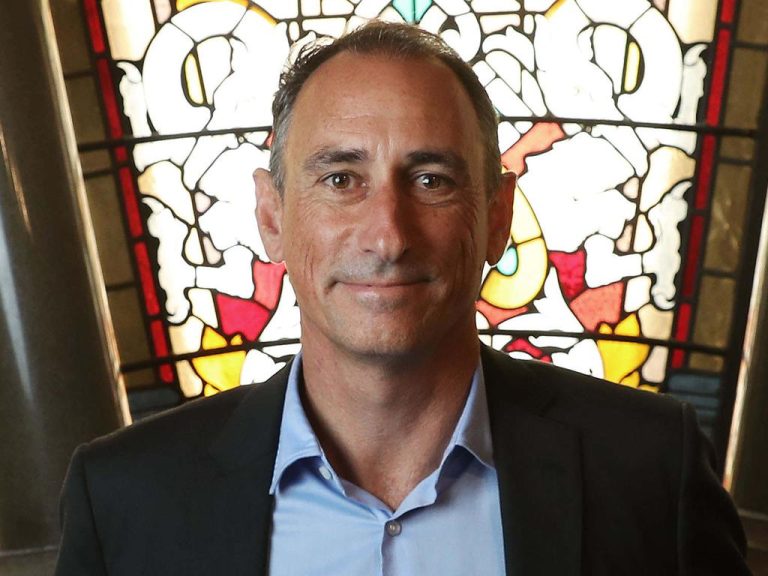Getting real: Dexus makes funds push for future
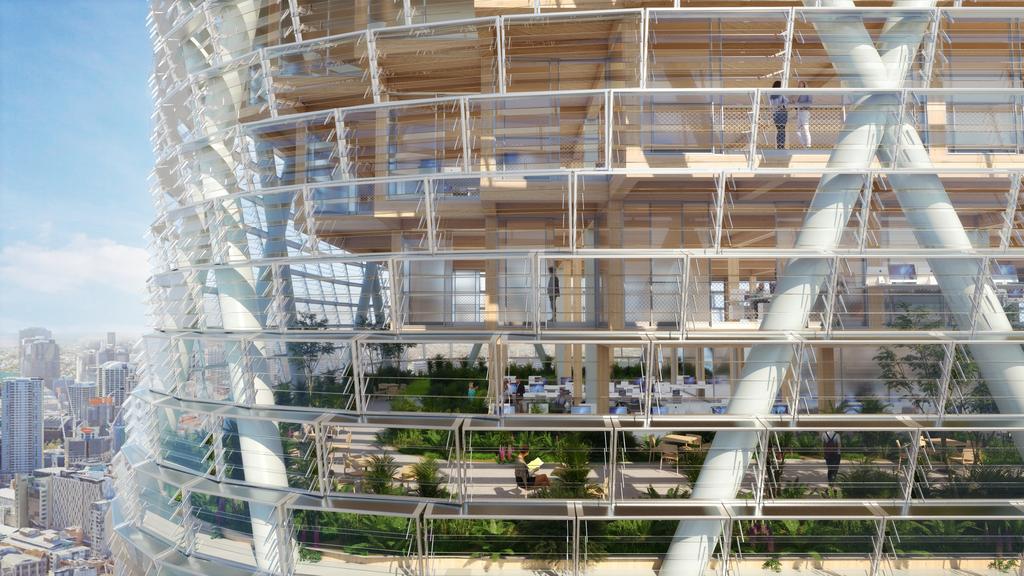
Property and funds group Dexus has flagged a major push into infrastructure and new areas of property over the next decade.
Property and funds group Dexus has flagged a major push into infrastructure and new areas of property over the next decade, in moves that could see it bolster its empire by $50bn.
The new strategy laid out by chief executive Darren Steinberg goes beyond getting the group through the dramatic ructions in commercial property and provides a glimpse of where the listed sector is headed.
The group’s moves will help redefine its direction and will reverberate across the battered real estate investment trust sector as rivals look to recover. Dexus wants to carve out a path that will transform it into a funds-driven operation like industrial powerhouse Goodman Group or rival Charter Hall, whose growth has been powered by local and offshore capital.
Dexus believes it can draw on its unique infrastructure capacity, picked up in the acquisition of Collimate Capital from AMP, putting it ahead of rivals focused on property partnerships.
Some have made forays into infrastructure, with Mirvac active before the global financial crisis and Charter Hall looking at the Hastings platform before walking away. But Dexus is hoping to create a unique “real assets” model that will hold up during the dramatic swings that have characterised the commercial property cycle.
The listed group revealed its long-term plans to dramatically expand its funds management, while urging investors to look past one of the toughest raising environments in years.
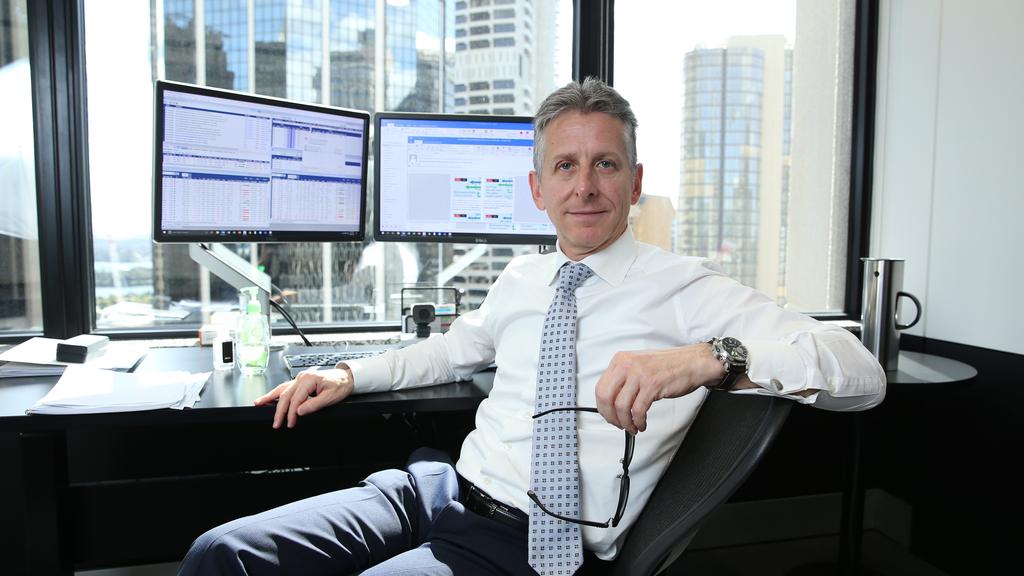
Dexus CEO Darren Steinberg at their offices in Sydney. Picture: Britta Campion/The Australian
Dexus has ambitions to grow its funds unit by about $50bn over the next decade as it transforms, but analysts expect it to stay as an integrated company rather than split up and become an externalised manager as some had mooted earlier this year.
While the stock is at a low ebb as investors mark it down due to its exposure to under-pressure office towers, it has been an early seller of city buildings, and believes its push into funds will pay off.
Mr Steinberg told an investor briefing that the company’s trajectory over the next decade would take it through the current phase of strengthening its balance sheet and finishing the integration of the former AMP business and on to building out the business into new areas.
The company is aiming to attract fresh capital from both domestic and offshore investors while also undertaking its large scale development pipeline including Waterfront Brisbane and Sydney’s new Atlassian headquarters tower, backed by deep-pocketed partners.
It then believes it will be positioned to become a top real asset manager, giving it a more capital efficient business model, which Mr Steinberg said would drive returns through the cycle.
But he acknowledged the current environment is perhaps the toughest he has seen in decades, citing conflicts in the Middle East and Ukraine and the impact of global inflation.
“Interest rates need to stabilise, return hurdles then stabilise on the back of that, and everyone gets back to work,” he said.
Mr Steinberg said that investors were still chasing local assets and were doing due diligence. “They want to deploy, they just want to know at what price they should deploy,” he said. “What we need to see – not just Dexus but the industry – is a stabilising of interest rates,” he said.
He expects that conditions will be clearer by mid-2024.
But the company is already moving to diversify its holdings in areas ranging from healthcare property to opportunistic plays in apartments via its funds unit.
Macquarie analysts said that Dexus may be aiming to double its third-party funds beyond 2030, with a significant opportunity set in infrastructure.
Dexus plans to grow third-party funds to five times its investment portfolio. It now has about $44bn of funds, against $17bn of investments, showing a 2.5 times ratio.
“Although the target is long-dated, we believe growth in the business provides a source of positive catalysts over time,” Macquarie said.
The bank said infrastructure was the key lever for growth, as Dexus had identified an investment universe of more than $2 trillion, including in infrastructure assets. “This will be key for the group’s funds growth ambitions in the medium term, particularly given more limited investment opportunities in listed markets following recent privatisation in the sector,” Macquarie said.
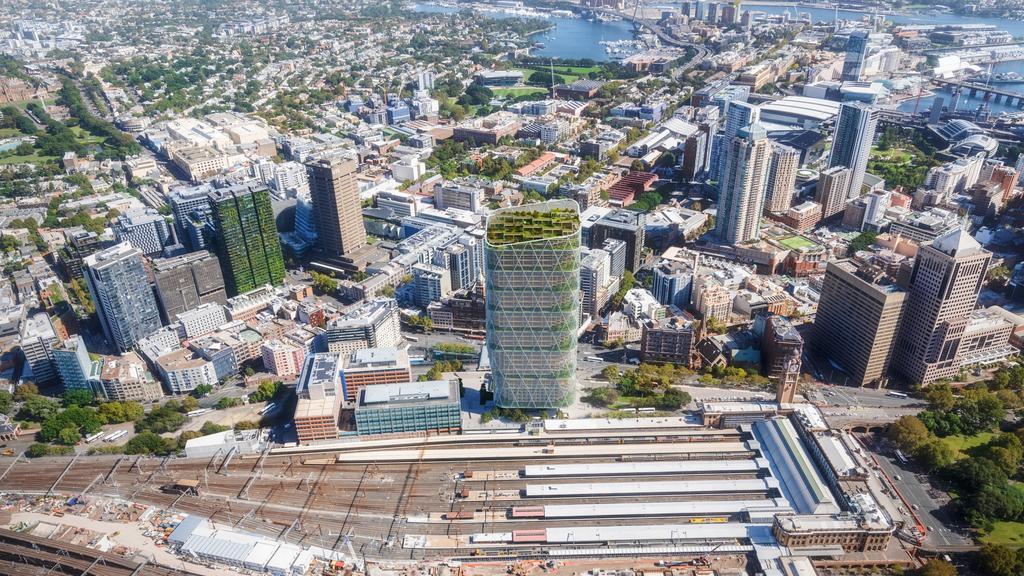
Construction is underway on global software giant Atlassian’s 39-storey headquarters, which will anchor the Tech Central precinct in Sydney.
Offices, retail, industrial and health also showed potential.
“The management platform, including capabilities in Collimate, provide an additional lever for growth, while conditions in real estate are challenging,” Macquarie said. It added the market is ascribing limited value to asset management earnings, with a potential re-rate as Dexus shows evidence of growth.
Dexus has been selling offices and more are on the block.
JPMorgan analysts noted that Dexus had sold off about $3.5bn worth of older-style office assets over the past three to four years. But the bank analysts said the challenge to its strategy was that it had committed to major office developments, potentially including 60 Collins St in Melbourne.
“We believe Dexus has a very good funds management platform and trades at a large discount to its fundamental value,” JPMorgan said.
Dexus flagged a focus on alternatives and emphasised its student accommodation, build-to-rent, opportunistic, credit and infrastructure exposures as areas of growth. About half of its funds are in industrial, healthcare, infrastructure and areas such as credit.
Mr Steinberg flagged that some buildings could be sold and the funds then poured into development or infrastructure projects.
“We are building the next generation of products,” he said. “We’ve set up an agile, flexible platform, and you’ve got to move with the times. If we just stuck to being in offices, we’d probably be taken over in the next couple of years.”
Dexus believes getting larger will work in its favour. “You’ve got to have scale in your funds; you’ve got to have an established business,” Mr Steinberg said.
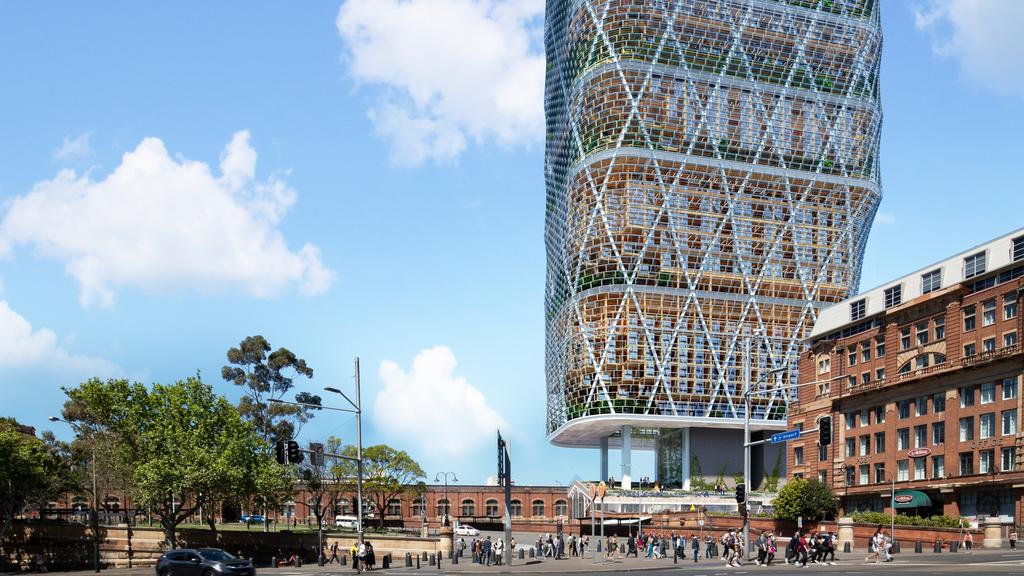
Sydney’s new Atlassian headquarters tower.
The AMP acquisition has broadened the Dexus business, with Mr Steinberg noting the group had exposure to build-to-rent via its funds platform holding large retail sites. “So that’s definitely an interesting opportunity,” he said.
The firm will focus on large scale projects where it can offer investors new vehicles, as it has done in airports. On the opportunistic strategy side, it is taking up both debt or equity positions.
Dexus may consider using its balance sheet to back infrastructure plays in future.
“There’s a big gap in the Australian listed market for infrastructure product and if Dexus ends up with more infrastructure on its balance sheet over time, that’s a good thing for investors becoming more and more interested,” Mr Steinberg said.

